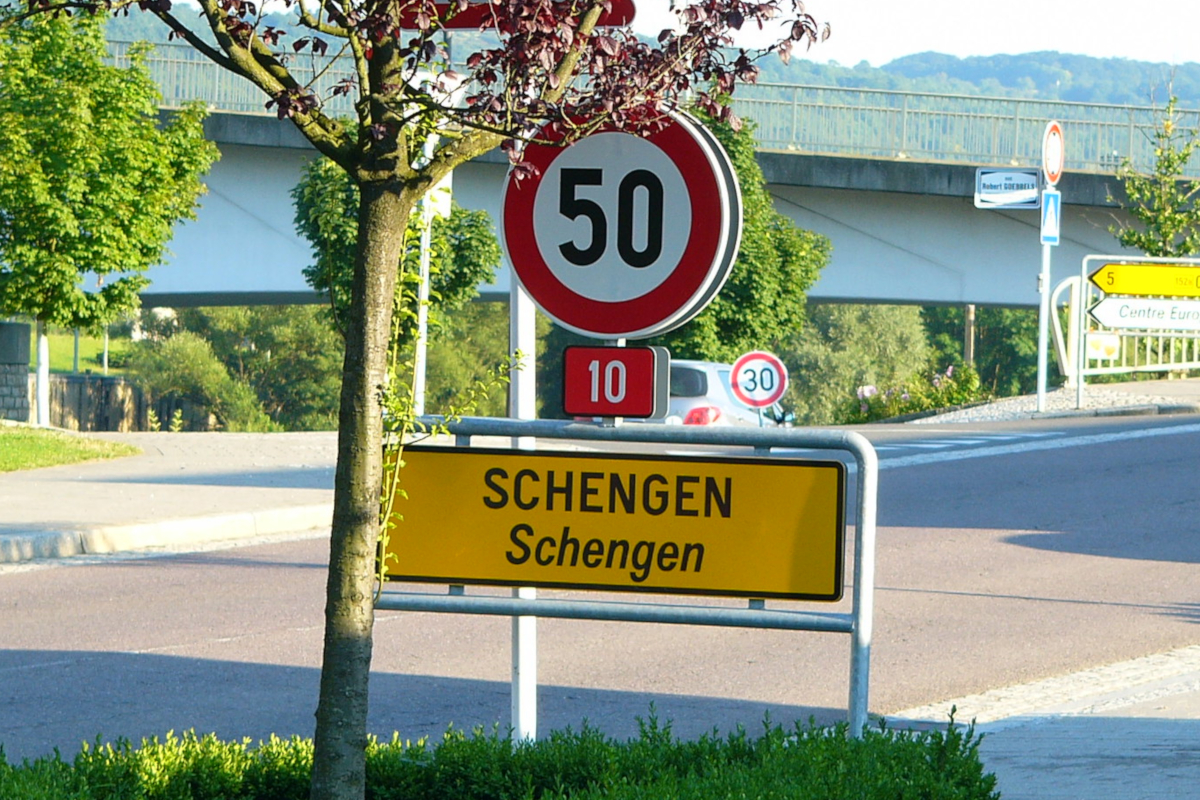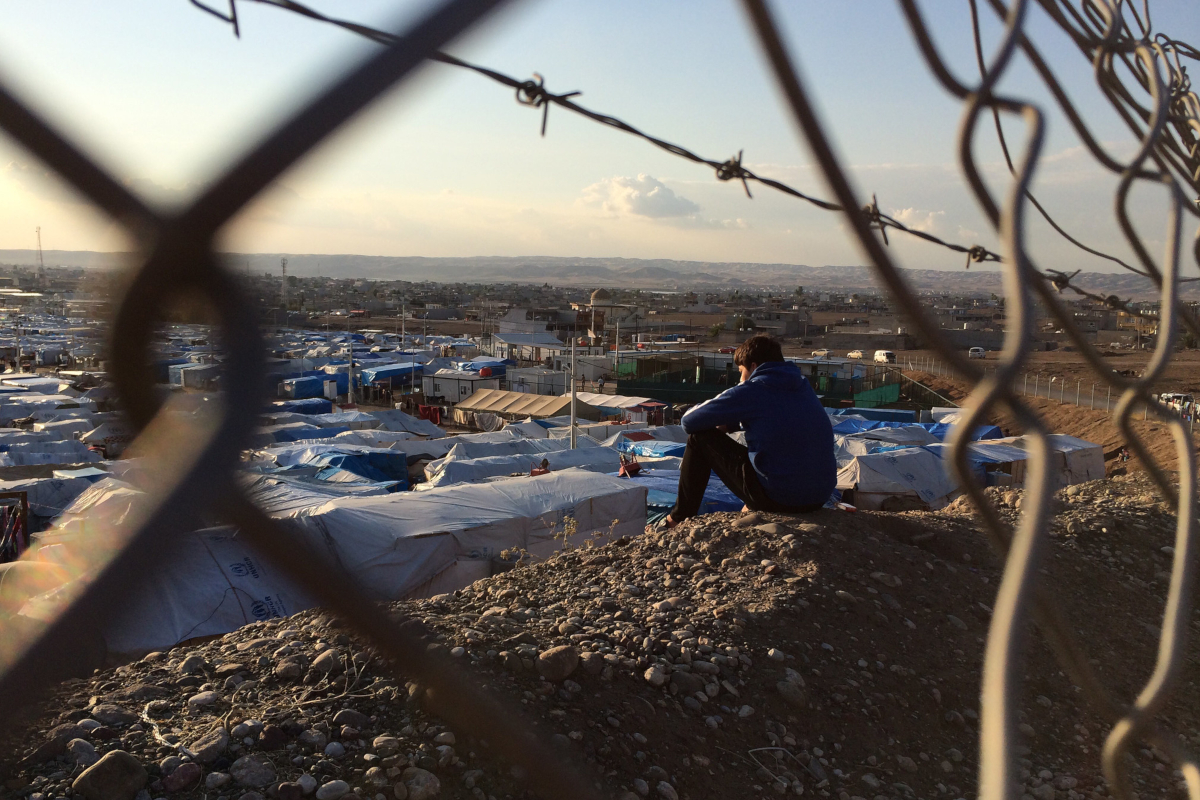Spanish Presidency’s call for “a preventive model” for migration: more of the same
Topic
Country/Region
05 October 2023
A discussion paper circulated on 26 September by the Spanish Presidency proposes a switch in the external dimension of migration from “a reactive to a preventive model”. In reality it appears that this is little more than doubling down on existing plans. The paper was circulated to inform discussion at the Justice and Home Affairs Council meeting last week.
Support our work: become a Friend of Statewatch from as little as £1/€1 per month.

Image: jafaralshamma, CC BY 2.0
From reaction to prevention
The introduction of the paper (pdf) focuses on “migration and asylum pressures” in different geographical spaces and across different routes since the Syrian war in 2015, including recent coups and earthquakes, interpreting them as evidence of “the importance of the external dimension in managing flows to the EU”.
Tragic events in distant regions are viewed as producing “serious negative migratory consequences” for EU member states, which are currently evident in Italy and the island of Lampedusa. Despite recognising a “bleak outlook,” EU policy is not called into question: rather, the paper calls for more force, resources and efficiency for “the external dimension of migration”, “the challenge of combating irregular migration” and responses to “crisis situations that may arise”.
While recent arrivals and overcrowding on Lampedusa are the example chosen to illustrate the crisis theme, the situation there was created by discontinuing practices such as swift transfers to the mainland and Sicily and the use of different disembarkation ports. Nonetheless, the presidency intends to double down on existing plans and calls for “an external migratory dimension based, in a decisive and continuous manner, on close and permanent collaboration with the key migratory transit and origin countries”.
Framing of the “preventive model”
EU and member state efforts on migration to date are described as “eminently reactive in nature” and as appearing to be in a “state of recurrent ‘crisis management’,” without reflecting on member states’ and Frontex’s tendency to portray migratory movements as crises to derogate legal norms and safeguards. Increasing “migratory flows” and the connected “human suffering” are deemed evidence of a need to “continue to improve”, though many observers are likely to see the proposed “improvements” as certain to cause further harm.
Recognition that the causes of “irregular migratory flows” are manifold, both structural and short-term, is viewed as meaning that growing reactive capability must be flanked by increasing efforts to prevent “irregular” departures through a “preventive model” to provide “structural answers to structural problems”. The Spanish presidency describes this as “not a matter of nuance, but of radical change in our approach to migration.”
However, the paper’s proposals are familiar, such as strengthening “the external dimension” and “cooperation with countries of origin and transit” through various measures that the Presidency itself describes as “well known”: development assistance to fight root causes of migration, combating migrant smuggling, developing legal pathways and a “sustainable readmission and return policy”.
Existing preventive efforts are deemed insufficient compared to the challenge and the EU’s partners (“countries of origin and transit on all migratory routes to the EU”) are claimed to share this view. The paper argues that a preventive model would reduce departures and, hence, human tragedies, which are blamed squarely on criminal networks – improving control and providing resilience at external borders alongside “reduced pressure in the internal area”.
The Presidency sets out the following elements of the proposed “preventive” model:
- shared responsibility;
- mutual trust (“active listening” and contacts at all levels);
- operational cooperation (joint patrols, joint operational centres, exchange of operational information to dismantle trafficking and smuggling networks, which must also be combated through “increased efforts” in EU territory);
- sustained and predictable cooperation over time, decoupled from arrivals, requiring “material assistance, financial and operational support” to partner states;
- “orderly, regular and safe migration pathways,” to be developed by aligning the needs of countries of destination, transit and origin, an exercise that may “strengthen cooperation and trust among them”, as well as providing safe alternatives for people wishing to migrate.
Funding a “preventive model for irregular migration”
Sufficient resources must be devoted to this model for it to have “real operational impact” beyond EU borders and the Presidency argues that funds made available through different budgets for the external dimension of migration will make it possible to finance many “operational migration-related projects”.
The ongoing review of the Multiannual Financial Framework, which is likely to add billions of euros to the EU’s border budgets, may provide the funding required. Partner states are, unsurprisingly, cited as being very interested in “how much” these funds will be worth, “for how long” they will be in place, and who the beneficiaries will be.
The Presidency claims that control of external EU borders lacks effectiveness if limited to EU territory and thus calls for a focus on “projects with real operational impact” covering “all routes”. Greater EU agency involvement in third countries is proposed (primarily from Frontex, but potentially also Europol) to “strengthen their engagement with partner countries” at the operational level. The controversies that have hounded Frontex in recent years – regarding involvement in rights abuses, mismanagement and corruption – are not noted in the paper.
While the paper contains little that is new, it appears to have gone down well with ministers at the Justice and Home Affairs Council last week – the Council’s press release said:
“Ministers supported the need to strengthen the external dimension of EU migration policy in order to face the migratory challenges the EU shares with other continents and countries. They emphasised that a coordinated combination of development assistance to fight against the root causes of migration, the fight against migrant smuggling, the development of more legal pathways as an alternative to illegal migration and a sustainable readmission and return policy would be essential to prevent irregular migration.”
The document also chimes with the final declaration of the ‘Med9’ summit in Malta (pdf) held three days after the JHA Council. That statement said, amongst other things:
“…we recall the need for a significant increase in the EU’s efforts on the external dimension front with a renewed approach to effectively reduce primary movements and prevent departures, improve the rate of returns of failed asylum seekers and other third country nationals who have no legal right to remain in the Union, address the root causes of irregular migration while respecting the protection of fundamental rights and international obligations.”
Yasha Maccanico, Researcher at Statewatch, said:
“The document claims to offer ‘a radical change in our approach to migration’ but singularly fails to do so. The overall focus is for more of the same – a doggedly prohibitionist outlook and agenda.
A more holistic view would see global inequality, poverty, the climate crisis, and political and economic instability as justifications for a shift in paradigm, because a degree of ‘irregular’ mobility is inevitable in the current context. The Spanish Council Presidency, meanwhile, largely argues that efforts to prevent departures should intensify, backed up by an assumption that third countries in general share EU goals. Governments and state authorities refuse to recognise that this may not be true, nor that substantial funding, training and enhancement of repressive capabilities to fight irregularised migration may be a problem from a developmental viewpoint, particularly in sites of widespread human rights violations.
As always, safe legal migration pathways are presented as a compensatory measure, but political progress on these is consistently slow, unlike repression, law enforcement cooperation and the development of security structures.”
Documentation
- The external dimension of migration. From a reactive to a preventive model – Discussion paper (Council doc. 12990/1/23 REV 1, LIMITE, 26 September 2023, pdf)
- Med9, Declaration of the 10th summit of the southern countries of the European Union (EU) (29 September 2023, pdf)
Our work is only possible with your support.
Become a Friend of Statewatch from as little as £1/€1 per month.
Further reading
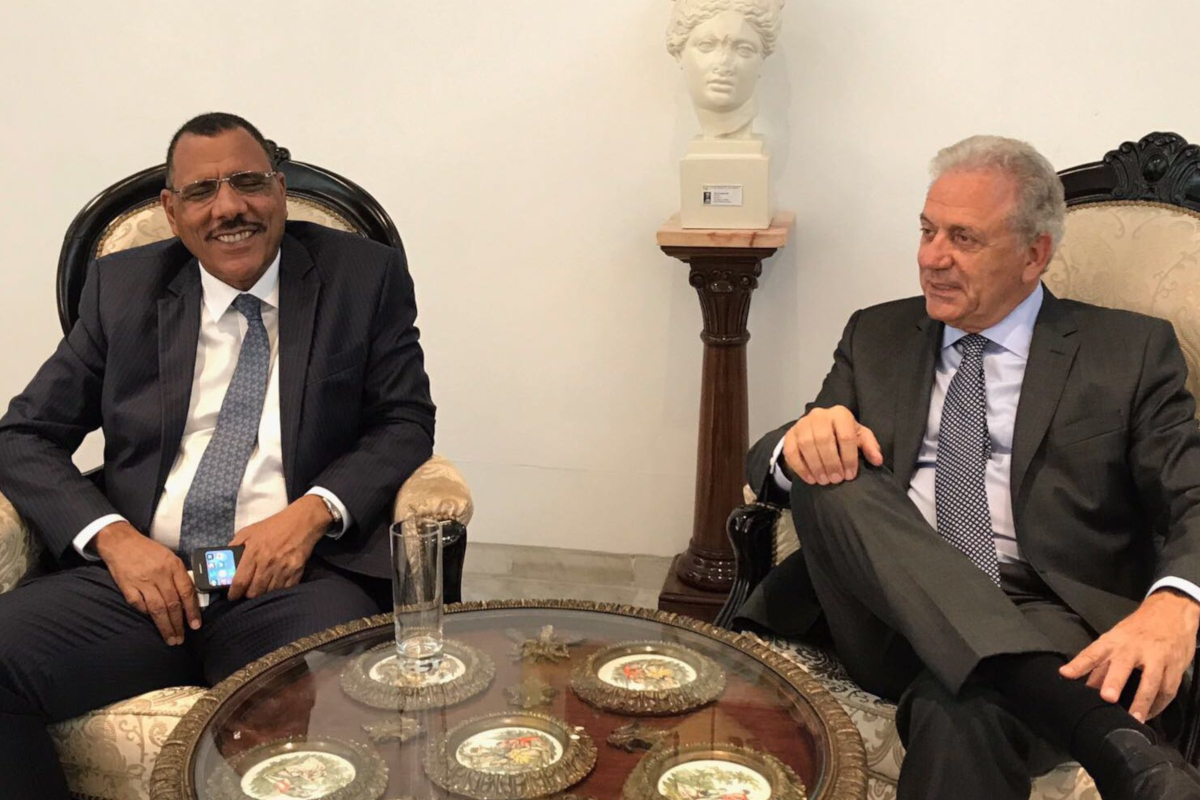
EU: Commission halts migration cooperation with Niger, but for how long?
EU-promoted migration control policies have caused discontent in Niger, and it has been suggested they may have contributed to the unpopularity of toppled president Mohamed Bazoum, who was ousted in a military coup in July. After the coup, the European Commission halted its support for security and migration projects in the country. However, its willingness to cooperate with institutions and actors that violate human rights elsewhere raises the question: for how long?
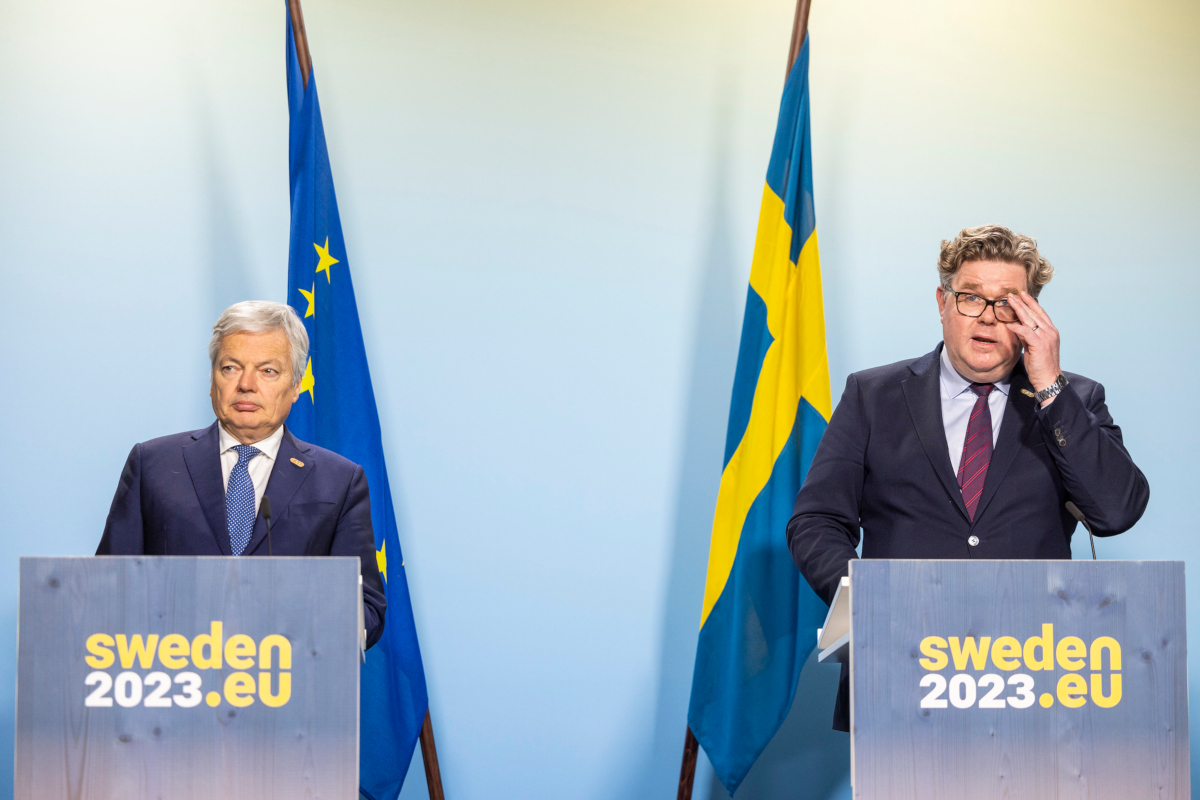
Sweden promotes “innovative approaches” for deploying deportation officials abroad
The Swedish authorities are aiming to increase collaboration on deportation through rapid police deployments in targeted countries for assignments "lasting from a few days up to three months."
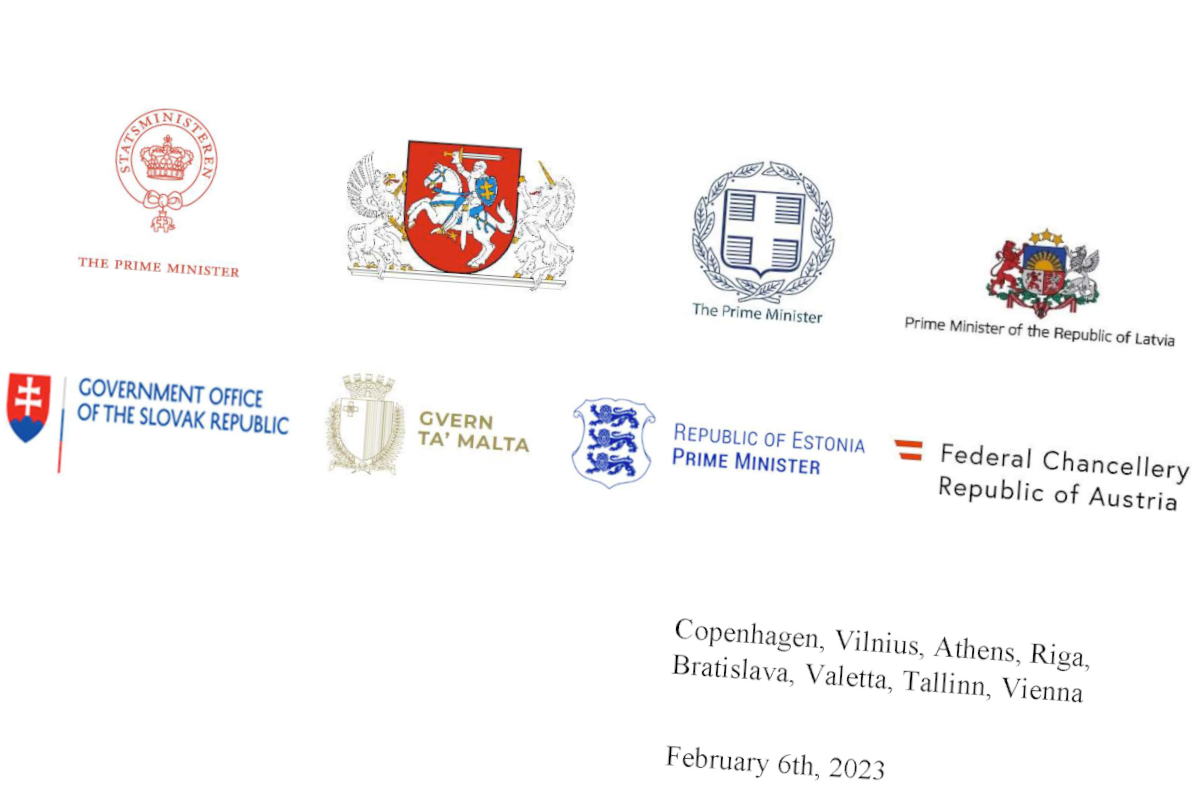
Eight states appeal to European Council: more fortification, deportation, externalisation, and "strategic communication"
The call comes in a letter signed by the prime ministers of Austria, Denmark, Estonia, Greece, Lithuania, Malta, Latvia and Slovakia that argues "the current asylum system is broken and primarily benefits the cynical human smugglers who take advantage of the misfortune of women, men and children."
Previous article
EU gears up for renewed crackdown on migrant smuggling
Next article
Spotted an error? If you've spotted a problem with this page, just click once to let us know.
